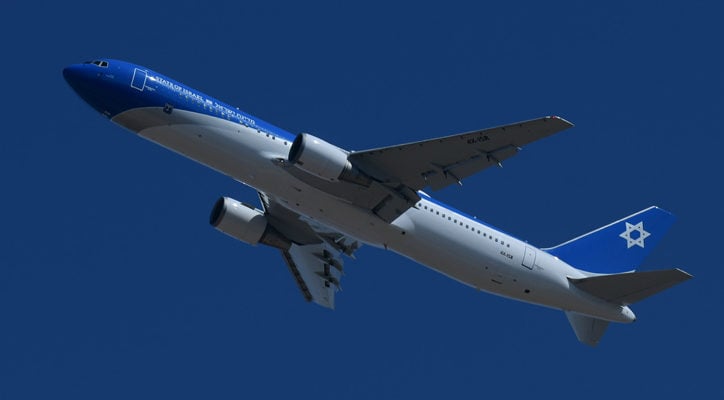Israel’s first ‘Air Force One,’ dedicated to flying the prime minister and president, made its maiden test run.
By Aryeh Green, TPS
Israel’s new state-owned aircraft, which will serve its prime ministers and presidents, took off on Sunday morning for its first test flight since landing in Israel three years ago.
Last week, the plane was unveiled and went on a preliminary runway trial at Ben-Gurion Airport. The brake system failed during the test, causing emergency crews and firefighters to rush to the scene.
Israel Aerospace Industries(IAI), which retrofitted the Boeing 767-300ER airliner, said the over-heating was taken into account since the aircraft had been in the hangar since it was bought in 2016 from Australian carrier Qantas.
“In the coming days, the aircraft will carry out its first test flight as part of the conclusion of the restoration procedure, according to the stringent requirements of the aviation world,” IAI said in a statement on Thursday.
The cost of the project, including purchasing, renovation and five years of maintenance on the aircraft, is estimated at NIS 729 m. ($206 million).
The retrofitted version of the plane will have 116 seats instead of the original configuration, which included 221 economy seats and 30 seats in the business class section.
The IAI has installed sophisticated encrypted communication systems that will allow the Israeli premiers to have confidential in-flight conversations with other world leaders.
They also noted that the aircraft could fly continuously to China and Japan in the East or to the United States or Brazil in the West.
“The aircraft meets all the complex security and safety requirements as dictated by the nature of its mission,” the IAI stated.
Until the purchasing of an aircraft by the state of Israel, official diplomatic missions were made on an airplane leased from El Al, costing the taxpayer a total of NIS 17 m. ($4.8 million) annually.
When the project was planned, it was supposed to cost 175 million shekels ($28.3 million), paying off the investment within five years. However, the project ran significantly over budget, casting doubt on its financial profitability.
In February, the State Audit Office launched an investigation into the funding of the project.





